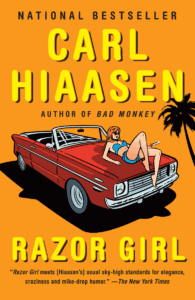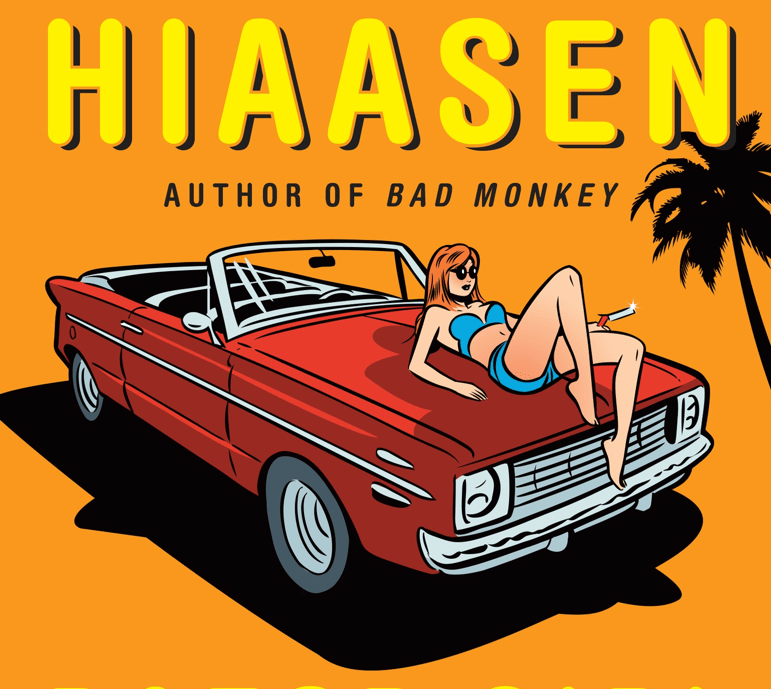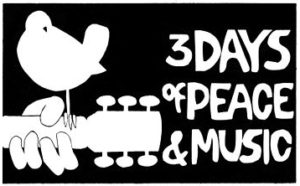
Carl Hiaasen wrote the little book, Assume the Worst (2018), as the “graduation speech you’ll never hear.” He wrote it to his son, Quinn, upon his commencement from high school that year. The advice as far as Hiaasen is concerned is meant for anyone. It might be a bit too honest, and perhaps a tad pessimistic, for many of us. Hiaasen argues against some of the favorite adages we hear all the time, like “Live Each Day As If It’s Your Last” and “If You Set Your Mind to It, You Can Be Anything You Want to Be.” His conflict with these sentiments? If you lived every day like it was your last, you’d undoubtedly be broke, irrelevant, and possibly in prison. And can you really be the next Willy Mays or Bill Gates? Probably not. Hiaasen’s adage? “Self-delusion is no virtue.”
Hiaasen proclaims that it’s more important to “figure out what you’re good at and get better at it.” Or, more simplistically and realistically, “live each day as if your rent is due tomorrow.”
Hiaasen has obviously taken his own advice well. He’s managed to work at what he is best at and has made the rent payments as well. Publisher Penguin-Random House interviewed Hiaasen in a “Meet the Author” episode last year, and Hiaasen admits that he is paid to “entertain and make people turn pages.”
And people have turned millions of pages in Hiaasen’s books since the late 1980s.
Carl Hiaasen was born in Florida in 1953 and has lived there all his life. He earned a journalism degree from the University of Florida four years after graduating from high school. He missed his college graduation because the small-town newspaper in Cocoa, Florida (Cocoa Today) that hired him expected him to show up to work that day.
A few years later, Hiaasen was hired to work on the Miami Herald city desk and its Sunday magazine. There he excelled at investigative journalism, exposing corruption in Florida, efforts at war with the environment, and over-development that has wounded Florida’s natural beauty. He began writing weekly columns for the Miami Herald in 1985 and continues to this day. Those columns have been published in three volumes: Kick Ass (1999), Paradise Screwed (2001), and Dance of the Reptiles (2014).
Hiaasen is most well-known outside of Florida for the novels he began writing in his spare time starting in the ’80s. The first three were co-authored with a colleague. Hiaasen struck out on his own in 1986 with Tourist Season and hasn’t stopped writing them since – he is the author of fourteen novels for adults and six for younger readers.
In 2003 he was honored with the Newbery Award for his bestselling children’s book Hoot. It was made into a family movie in 2006. His later novels for children, Flush, Scat, Chomp, and Skink-No Surrender, have been favorites among students and teachers in elementary and middle school. Nineteen of Hiaasen’s novels have been on the New York Times Best Seller lists, and many have been translated into as many as 34 languages.
I became a fan of Carl Hiaasen after reading his eighth novel, Sick Puppy, published in 2000, and I began binge-reading the earlier ones. They are irreverent and full of unsavory characters and Florida sunshine. They are a perfect recipe for fun.
Two of Hiaasen’s favorite writing tricks have managed always to tickle my fancy. One is his use of the two-word title beginning with Tourist Season through the thirteen others: Skinny Dip, Sick Puppy, Bad Monkey, Strip Tease, Stormy Weather, Nature Girl, Star Island, Double Whammy, Native Tongue, Skin Tight, Lucky You, Basket Case, and Razor Girl.
The other trick is the glorious use of real-life Florida that he finds in Floridian newspapers. If you’ve never heard of, or Googled, “Florida Man,” you haven’t discovered the never-ending litany of idiotic habits and behaviors of, well, Florida Man. As an example, Esquire Magazine listed ninety of the Wildest Florida Man Headlines from January through March 2019. January included “Florida Man Learns Hard Way He Stole Laxatives, Not Opioids.” February 6 boasts, “Florida Man Tried to Run Over Son Because He Didn’t Want to Take a Bath,” and a March 11 headline states “Florida Man Accused of Intentionally Pressure Washing His Neighbor.”
Okay, you get the picture, and funnily enough, Hiaasen admits that he uses some of these character flaws proven by newspaper accounts as the basis for events or character description in his novels.
Maybe, though, I’m drawn to Hiaasen because we have several things in common. We both graduated high school in 1970, and we both learned to write before the age of 8 on manual typewriters given to us by our fathers.
Hiaasen and I both grew up near the ocean – he on Florida’s east coast and I on California’s west coast, and we were each one of four children in our respective families. Most importantly though, we both have an unusually fine appreciation for the dark humor found in the mistakes or idiotic behavior of criminals.
Sadly, Carl Hiaasen’s only brother, Rob, was killed in a mass shooting at The Capital offices in Annapolis, in the summer of 2018. Rob followed in his older brother’s footsteps, working as an assistant editor and columnist at a city newspaper. Hiaasen was devastated by the news. Yet, he continues to write his weekly columns for the Miami Herald. He still exposes Florida corruption and disrespect for Florida’s environment, all the while ticking off many in South Florida with his honesty. Given the fact that he has continued to publish one of his novels every three or four years, I imagine he has another in the works. Certainly, there are enough real stories in Florida’s newspapers to supply characters and plot lines for more hilarity.
Charlotte Canelli is the Library Director at the Morrill Memorial Library in Norwood, MA. Look for her article in the December 5, 2019 issue of the Transcript and Bulletin.



